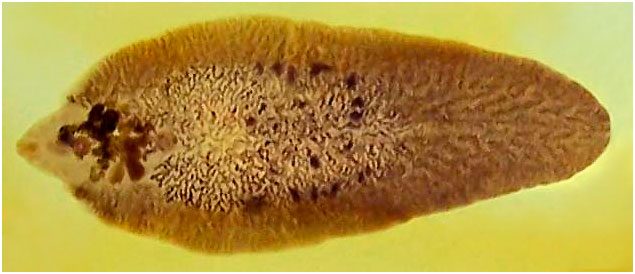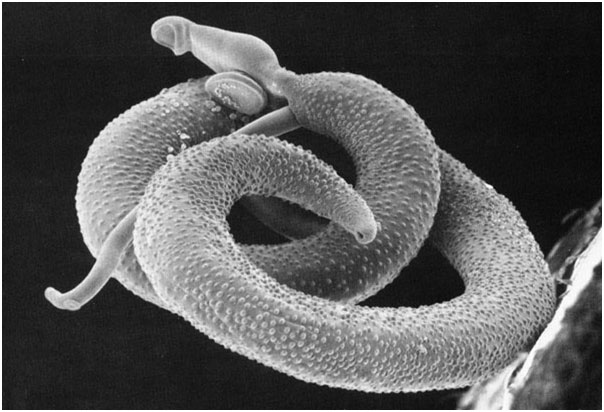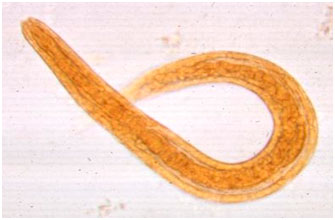Parasites
https://www.drclark.net/en-us/infective-agents-and-pollutants/parasites
Dr. Clark was known worldwide for her knowledge about and expertise on parasites.
She was the first to recognize that one does not get parasites only in tropical countries. Parasites can cause great damage to the human body, weakening our immune system and cause disease.Only the adult stage is the one that should "normally" live in humans (and then only in the intestine). Instead Dr. Clark realized that the human species are now heavily infested with parasites. Globalization has also given its contribution to this. Global travel reduces our planet to the size of our backyards and in order to keep our own backyards clean, the neighbors must keep backyards clean too. So it is with keeping our bodies free of viruses, bacteria and parasites. We all must be free of them. We can do this electrically with zapping and Parasite Cleanse which removes more than 120 species of parasites without any side effects.
For more obstinate parasites such as ascaris and tapeworms, refer to the Mop-up Program
BUT WHAT IS A PARASITE?
A parasite is a tiny organism that lives on or in another host organism and is fed at the expense of its host. In other words the parasites that live inside us use up our vitamins, proteins and all other nutrients. Not only do they do this, they also do their "business" inside us releasing their toxic bacteria and viruses inside us.
There are three principal groups that cause sickness in humans:
- PROTOZOA – unicellular microscopic organisms such as plasmodium, cryptosporidium or entamoeba
- HELMINTHES – multicellular organisms visible to the human eye such as flatworms (trematodes), cestodes (tapeworms), acantocepalins e round worms (nematodes)
- ECTOPARASITES – bigger insects – these act as vectors transmitting illness such as ticks, lice and mites
Heavy parasitism is caused also by the water and food we take in.
Flatworms such as Trematodes (Flukes) are small suckers that attach themselves to our tissues, suck and release eggs. They can release from 25'000 to 50'000 eggs per day
MAIN FLUKES MENTIONED BY DR CLARKFASCIOLOPSIS BUSKI: FASCIOLA HEPATICA: EURYTREMA PANCREATICUM: CLONORCHIS: PARAGONIMUS: NEMATODES (roundworms)DIROFILARIA: ASCARIS: TAPEWORM STAGES (Cestodes – flatworm): SHISTOSOMA: ANCYLOSTOMA: They can come in through our skin and go preferably to the duodenum. They cause bleeding, anemia, arthritis, joint and muscle pains, schizophrenia and intestinal problems. STRONGYLOIDE: ENTEROBIUS VERMICULARIS: TRICHINELLA: |
|
Find out more on Parasites and see their preferred Location
Copyright notice – Excerpts taken from "The Cure of all Diseases" written by Dr. Clark
Dr. Clark was the first to realize that we are heavily infested with parasites. Man has always had parasites and the normal cycle is that our immune system should eliminate them. What causes them instead to dwell and thrive in us in all their larval stages?
Dr. Clark shows us that just as man has food preferences, parasites, which are also living things, have their own food preferences and have adapted to the solvents and metals in our environment much more quickly than their human hosts. Parasites are also strongly associated with food allergies.
This is bad news for us because parasites will use up our food, our vitamins, and our minerals while releasing their own harmful bacteria, metals, viruses, toxins, and other waste products in us.
The healthy of us have few, the sick have many parasites.
Unfortunately, globalization is deciding for us how our food should
be sterilized, how our water should be cleaned, and the purity standards
for our food supplements.
In order to stay healthy, it is vital
that we return to nature as much as possible, preparing food from
scratch and finding clean sources of water.
For humans it is also the food and water that decides our health and whether we are heavily parasitized and destined to a life of low energy and lots of medicine.
PARASITE FOOD PREFERENCES
FASCIOLOPSIS BUSKI :
Food requirement: onion
Preferred solvent: alcohol isopropyl
FASCIOLA HEPATICA:
Food requirement: wheat (partly digested into gluten and gladin)
EURYTHREMA PANCREATICUM:
Food requirement: LIMONENE- found in lemons, orange oil, pine needles, peppermint etc
Preferred solvent: methanol
CLONORCHIS:
Food requirement: oats
STRONGYLOIDES:
Food requirement: potatoes
DIROFILARIA:
Food requirement: milk sugar
ASCARIS:
Food requirement: QUERCITIN - found also in cantaloupe, cheese, cucumbers etc
ONCHOCERCA:
Food requirement: corn
PARAGONISMUS:
Food requirement: lemon
Preferred solvent: benzene
ECHINOPORYPHIUM RECURVATUM AND GASTROTHYLAX:
Food requirement: cinnamon
ECHINOSTOMA REVOLUTUM:
Food requirement: sorghum, acetaldehyde
By eliminating these foods for 3 weeks you will have starved most of your parasites. You can then start to introduce one food once a week.
Also food oils need to be eliminated until the body has digested all the accumulated food oils. Food oils are the food for most Oncoviruses which are released by parasites and give immortality to cancer cells and to bacteria cells. You can help to remove accumulated food oils by taking enzymes such as pancreatin-lipase or digestive enzymes.
Parasites also trigger our food allergies. Allergies open the door to inflammation, which opens the door to more bacteria and viruses.
Check out the Parasite Gallery
(Taken from Dr. Clark’s book "The Prevention of all Cancers" )









No comments:
Post a Comment
Thanks for visiting...and please leave comments, questions or things you would like or would like to understand.